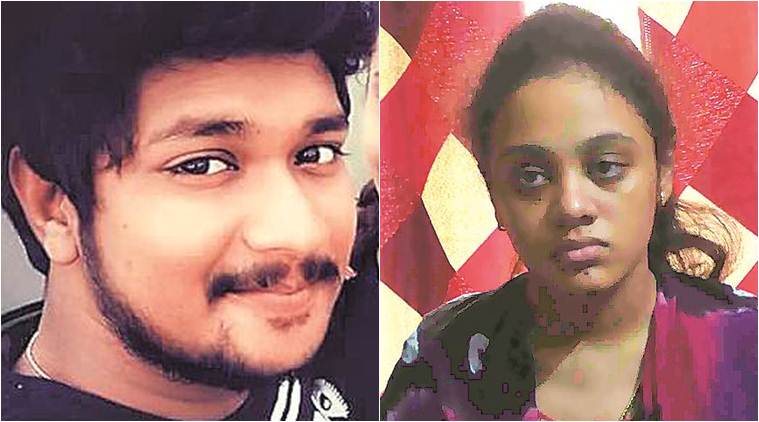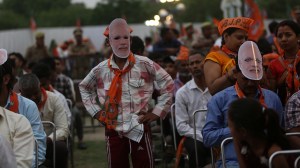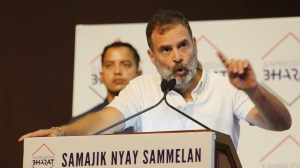- India
- International
Erasing caste from hate crime
Family ‘honour’ is being projected as a rationale to justify the murder of a Dalit in Telangana
 Pranay and Amrutha got married in January.
Pranay and Amrutha got married in January.
What do you call the brutal murder of Pranay Kumar, a Dalit youth, in Miryalaguda, Telangana on September 14? Is it just another murder or an instance of hate crime or a case of caste atrocity? The media innocently dubbed it “honour killing”. Dalit activists objected to this term since it presented the point of view of the upper caste parents of his wife, Amrutha Varshini, accused of plotting the murder. The criticism led the killing to be described as a caste atrocity.
Pranay’s murder is part of a pattern in Telangana: Madhukar in Manthani, Saikumar in Nizamabad, Naresh in Bhuvanagiri and several others. At least 18 Dalit youth have reportedly been killed in similar circumstances since the formation of Telangana state. However, Pranay’s murder generated a national debate. A new paradigm of parental love has been formulated to justify the crime. Struggles for caste equality and human dignity have always been opposed in the name of merit, secularism, nationalism or equality. Caste inequality is never confronted on its own terms. Therefore, the cause of Pranay’s murder is parental love.
T Maruthi Rao, a local businessman and a Komati by caste, was opposed to his only daughter Amrutha (21) marrying Pranay (24). Amrutha was told she would not be allowed to marry a Dalit. She was allegedly beaten up, locked up and threatened, but she continued to be in touch with Pranay. Pranay was allegedly offered money and his family warned of dire consequences if he did not break up with Amrutha. Pranay and Amrutha fled to Hyderabad and got married in January. Rao allegedly hired men to kill Pranay, who hacked him to death outside a hospital in Miryalaguda town, which the couple was visiting for a prenatal checkup. Rao has since been arrested and sent to prison.
Komatis of Miryalaguda town and Nalgonda district are known to be rich and influential. They had claimed the status of Arya Vysyas in the colonial period and are now placed in the upper varna of the caste hierarchy. The Arya Vysya Sangam waged a long propaganda war against Dalit-bahujan scholar Kancha Ilaiah in 2017 and was supported by all the major political parties. The “pride” and “honour” of the community was publicly accepted when parties and media acknowledged that it is wrong to “insult” a community.
Miryalaguda and other towns in Nalgonda were important centres of the communist movement in the 1940s and the naxalite movement in the 1980s. As social and political movements slowly lost ground, the Arya Vysyas, Reddys and other dominant castes emerged as the political elite. In the erstwhile Andhra Pradesh, the police had trained former naxalites to suppress the naxalite movement. Nalgonda was a centre of these anti-naxal gangs. The propertied class of the region developed contacts with these gangs to further their economic interests and social dominance. It is this political economy that enables caste murders like that of Pranay. In Pranay’s funeral procession, activists raised slogans demanding that the state end casteism and build a casteless society. These slogans summed up the promises of our anti-colonial struggle and the objectives of our Constitution.

Days after the murder and the protests that ensued, we hear a new set of arguments on the same issue. These views are not of the Maruthi Raos that we already know. The “casteless” educated middle-class parents and youth now ask: What about the rights of the parents? Amrutha was brought up with love and affection by her parents for 20 years. How can she desert them for some boy and break their hearts? What about the family and its values? The conclusion is: We are Indians and family is our greatest institution. Parental love is the ultimate form of our culture.
This view is being circulated in the form of articles and television interviews in the mainstream media. Several anecdotes and narratives consolidate this view. Why did the couple have a lavish reception? Why did they upload videos of the wedding reception on social media? Why hurt the father and the family? The subtext of this argument is the head of the family, the patriarch, has been publicly humiliated and incited to take revenge. Therefore, the culprit is the daughter who has no respect for the institution of family and its values. Amrutha is immature and misguided. Pranay trapped her. Institutions like Arya Samaj, which facilitated their marriage, are also accomplices.
The new narrative is that parents are elders who need to be respected. Murder, of course, is wrong but it has a rationale. Amrutha and Pranay are shamed as selfish. Amrutha is abused when the Telangana government offers compensation and a government job. A bold and outspoken girl with independent views is made to look like a traitor and betrayer of her family. The central issues of caste hierarchy, caste violence and caste prejudice are side-lined. The agency of Pranay and Amrutha, two adults who asserted their will and dignity, is denied. Caste, of course, could not be erased since Pranay is a Dalit. It is admitted that caste survives in state policy and in the self-representation of Dalits, but not in the Indian (Hindu) society.
This discourse of parental love took a concrete form when 500 Vysyas of Miryalaguda town took out a rally on September 24 and met Maruthi Rao in the prison. The Vysya Samaj said: “We condemn the murder… We know how hurt Rao is and we went to assuage his feelings.” A new association for the protection of parents rights has been formed. While parental love, Vysya pride and family honour are universal values of our democratic country, the murder of Pranay is not a caste atrocity but merely the revenge of a hurt father.
This idea of an Indian (read Hindu) family may offer a rationale for caste violence, but it negates Ambedkar’s idea of annihilation of caste.
EXPRESS OPINION
Apr 25: Latest News
- 01
- 02
- 03
- 04
- 05










































